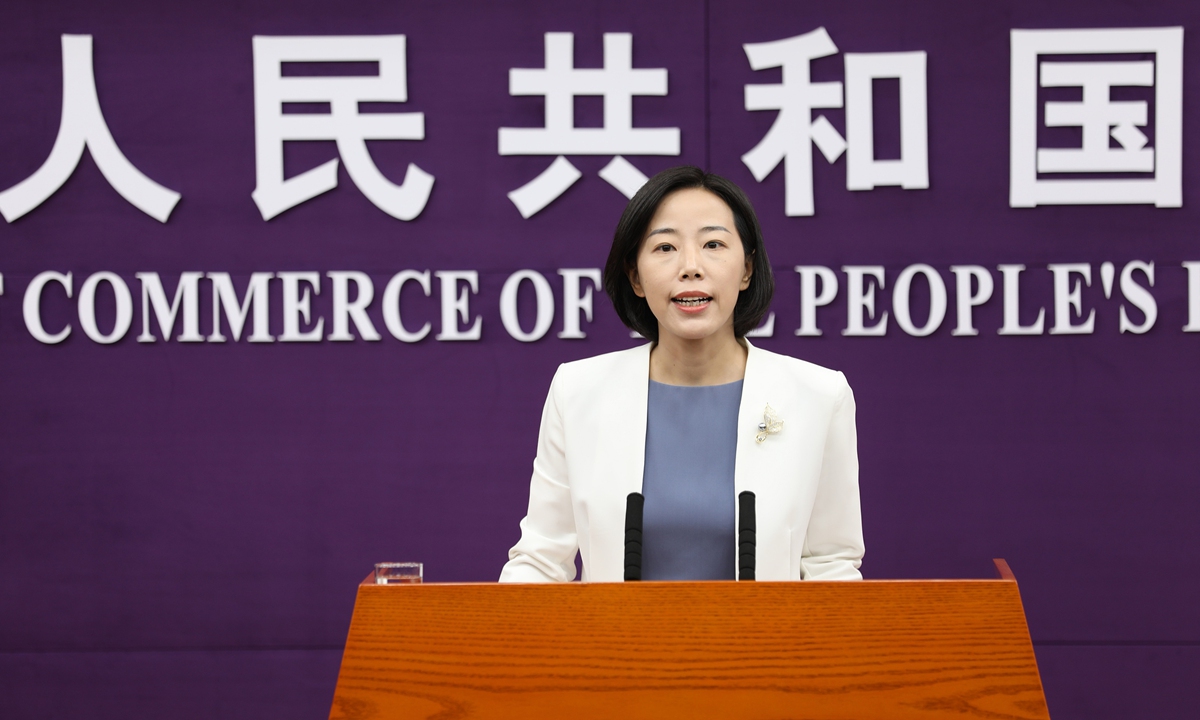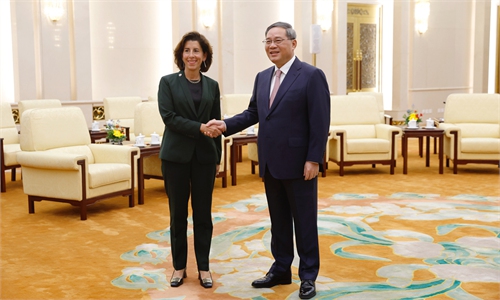China, US trade ministers to maintain regulator communication, talk directly over ‘important matters’: MOFCOM

Photo: Ministry of Commerce (MOFCOM) spokesperson, Shu Jueting
China and the US have agreed to establish a multi-level communication mechanism to strengthen talks on economic and trade affairs, and Chinese Minister Wang Wentao and US Commerce Secretary Gina Raimondo agreed to maintain regular communication, discuss important issues directly in a timely manner, and meet at least once a year, a spokesperson of China's Ministry of Commerce said on Thursday.
The remarks come as Raimondo wrapped up her "successful and productive" four-day high-stakes visit to China on Wednesday, with the visit yielding material results, including the establishment of new communication channels to seek solutions to specific business issues and support for enterprises of the two countries in carrying out pragmatic cooperation.
Explaining on the agreed new channels, Shu stated that the two trade ministers have agreed to maintain regular communication and promptly deliberate on crucial matters, including at least one annual meeting. A joint working group comprising of officials from deputy ministerial and bureau chief levels will be formed, convening biannual deputy ministerial-level meetings and inviting representatives from businesses on both sides. The working group will focus on addressing concerns voiced by business communities across both nations, striving to collaboratively explore solutions for specific commercial issues.
Moreover, a mechanism for exchanging export control information has been initiated, serving as a platform for elucidating each side's export control systems and enhancing communication. Both parties will share export control-related information in accordance with their respective laws. This mechanism is anticipated to facilitate mutual understanding and communication regarding export control policies, conveying the concerns of businesses from both countries, the official said.
The two sides also held technical consultations to bolster protection of trade secrets and confidential business data, which aims to improve administrative licensing processes, according to Shu.
The new communication channels will provide significant platforms for the two nations' commerce ministries to conduct normal dialogues, and is a major step in stabilizing China-US ties, promoting practical cooperation among business communities from the two nations, Shu said.
Shu also mentioned that China has expressed serious concerns over issues including the US Section 301 tariffs, semiconductor policies, investment restrictions, discriminatory subsidies, and sanctions on Chinese firms. China stressed that a broad approach to national security hampers normal economic exchanges, and unilateral protectionist measures conflict with fair competition principles, undermining global supply chains and business collaboration.
"Some foreign enterprises, including those from the US, have voiced interest in expanding operations in China after years of engagement. However, the biggest risk for these enterprises is the heightened instability due to fraught China-US relations," Shu said.
The best way to mitigate the risks is to return to the consensus reached at the Bali Summit. This would steer the China-US economic relationship onto a healthy and stable path, leveraging the bilateral economic and trade relationship to stabilize expectations and boost confidence in trade and investment cooperation, the official noted.
China remains committed to reform and opening-up, aiming to create a market-oriented, rule-based international environment. From January to July, China's actual use of US investment surged by 25.5 percent year-on-year, according the commerce ministry.
"China's doors are opening wider, welcoming global enterprises, including from the US, to invest and partake in development opportunities," Shu said.
Global Times


